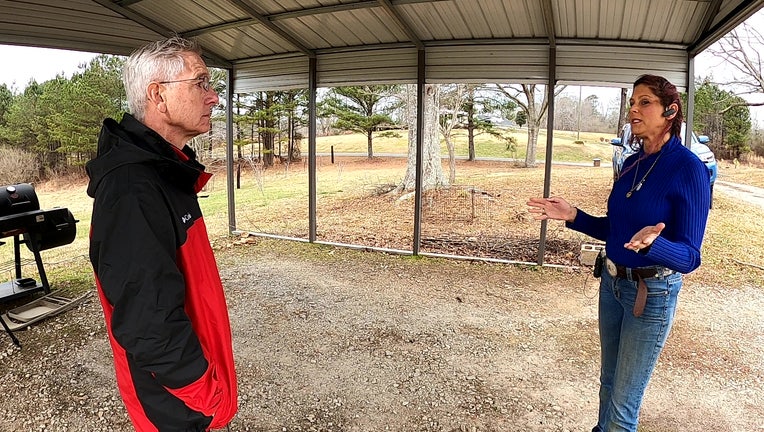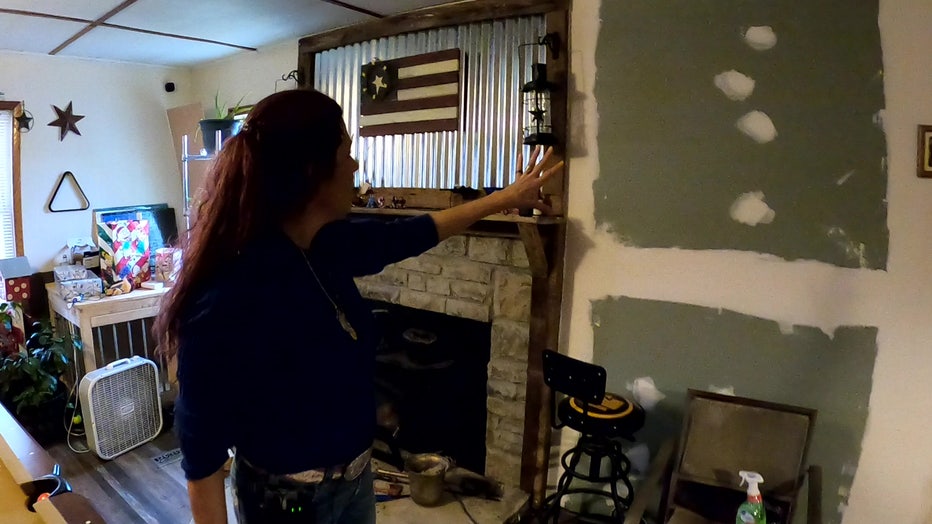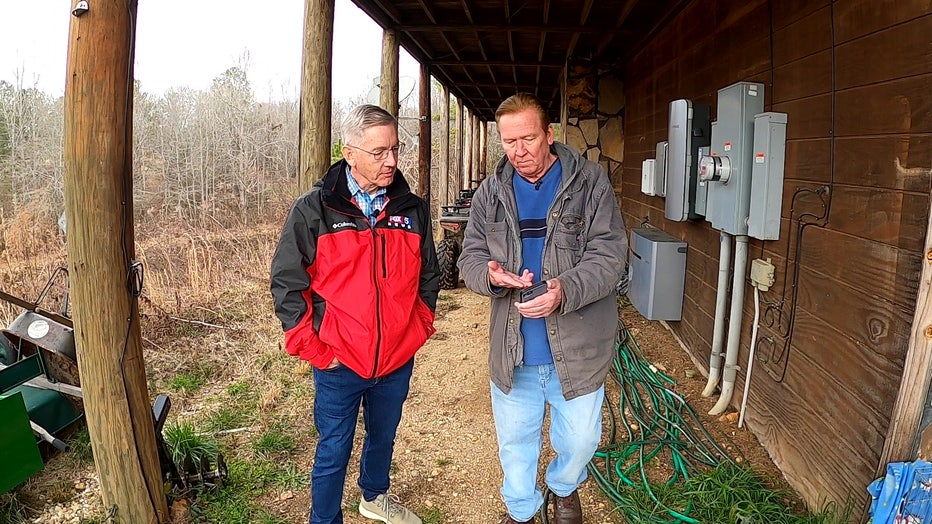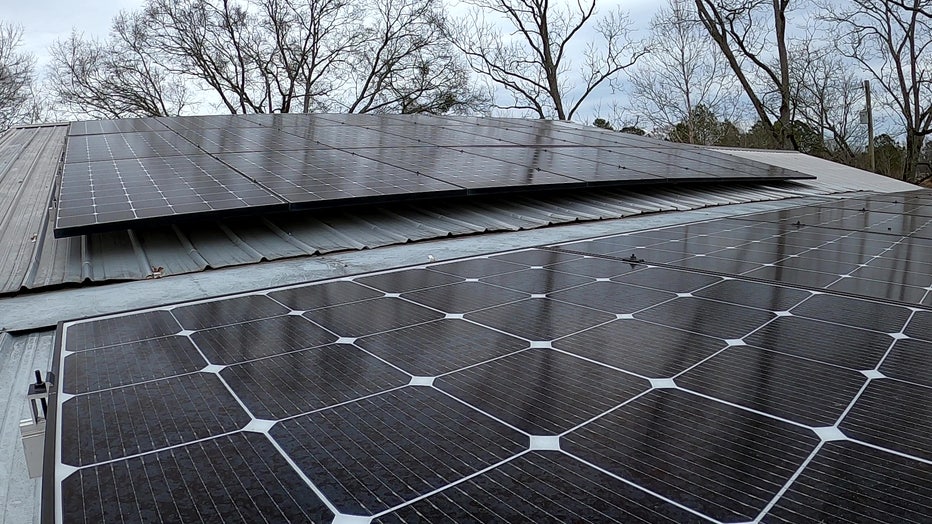For these rural Georgians, solar power has been 'chaos'

AJ Hayes of Tallapoosa said her experience with residential solar power has been "chaos."
TALLAPOOSA, Ga. - You’ve likely heard the sales pitch. Get off the grid. Get paid to go solar.
Some residential solar power customers in Georgia love going green. But others paint their experiences red. The color of frustration.
"It’s … been … chaos," complained AJ Hayes.
When she’s not rounding up loose cows on her Tallapoosa farm, the retired 911 dispatcher looks at the damaged walls and ruined electronics in her home and wonders why she ever decided to go solar.
"Once they took my money, that last check, I ain’t seen them," she said. "I can’t get them back out here. I can’t get anybody to fix anything."
Last year, after her husband had passed away, Hayes decided to focus her energy on solar.
She agreed to pay SunPro Solar $58,628 to install solar panels on the roof and a battery on the side of the house, with the promise of reducing her Carroll EMC bill by an estimated $1,547 the first year — or about $130 a month.
She’d get back some of the original investment from tax credits and by selling power to Carroll EMC.
But Hayes said the contractor left holes in her roof, allowing rain to damage her walls.

AJ Hayes shows some of the repairs she's had to make. She says the solar panel installer left holes in her roof, allowing rain to ruin several of her walls.
And she said when the company tried to connect the system …
"You hear this pop!" she said, remembering. "This really loud, almost like an M-80 firecracker going off inside the house."
She said a power surge destroyed her refrigerator, air conditioner, and other appliances.
And instead of going down, she says her power bills have actually gone up. Before solar, her December bill was $161.45. Her January bill was $243.54.
After solar? December was $266.92. January 2022 was $264.68.
So how did Hayes find this company? Her neighbor Danny Griffin across the street.
"I had people lined up for it," he said. "Family members and some friends."

Danny Griffin of Tallapoosa imagined he could pay for much of his system by collecting $1,000 for every successful referral. But he says he can't in good conscience refer anyone to the solar company he hired.
With SunPro offering $1,000 cash for every successful referral, Danny figured he could make up a lot of the $69,000 his system cost. Plus there were those tax credits that would help him get back 26% of his money.
But then he started getting his electric bills.
"When he told me would cut it to $120-110 a month, I thought hey this is good," Griffin said. "But it ain’t been that way. It’s been $200 still."
It’s the kind of result that aggravates solar power advocates. They know you only get one chance to make a first impression.
"We’re extremely frustrated with those types of sales practices," said Montana Busch, president of the nonprofit Georgia Solar Energy Association. "And people just not being properly educated."
Busch is also a solar energy installer. He wouldn’t talk specifically about SunPro.
Busch’s nonprofit advocacy group, founded in 2002, encourages customers to get multiple estimates and offers a list of questions in case the sales rep paints too rosy a picture.
"It sounds really nice, but the customers aren’t doing the research they should to get comparable quotes to realize that they’re way overpaying these companies," cautioned Busch.

The Georgia Solar Energy Association estimates 7,400 Georgia homeowners have solar. They want to encourage smarter salespeople and more careful customers.
He estimates there are 7,400 homes in Georgia powered by solar. A maximum of 5,000 are allowed to sell excess power back to the utility at the same price the utility charges them. That’s called net metering.
The rest get paid about 20% of what the utility typically charges.
Last year ADT bought SunPro Solar, which markets itself as one of the biggest residential solar power contractors in the country.
The company would not respond to our questions about its two Tallapoosa customers, but afterward each received texts from SunPro promising to come out and fix their problems.
There’s a larger loss here: two potential solar power advocates in rural Georgia who right now say they can’t honestly encourage their friends and family.
"I knew without a doubt if this worked out great they would have signed," said Hayes with clear regret. "So … at this point, nobody is signing."
Her neighbor feels the same. No endorsement from him, either.
"No, not right now," said Griffin. "Not until they can prove to me that they can work all the bugs out."

